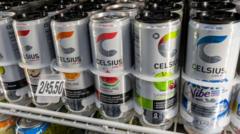Walmart has announced a voluntary recall of certain frozen shrimp products in the United States after radioactive material was identified in a shipment. The U.S. Food and Drug Administration (FDA) issued a public warning, advising consumers not to consume frozen shrimp sold under Walmart's Great Value brand due to possible exposure to a hazardous isotope during transportation. One instance of breaded shrimp tested positive for the radioactive contaminant. However, the FDA specified that this particular sample "did not enter US commerce."
Consumers in 13 states, where these shrimp products are available, have been urged to discard any recently purchased items from three specific batches. "The health and safety of our customers is always a top priority," a Walmart representative told BBC News. The company has placed restrictions on sales of the affected product and has removed it from their stores. They are also cooperating with their supplier to investigate the issue.
Individuals who purchased the recalled shrimp can return to any Walmart location to receive a full refund. The impacted products were sold in Alabama, Arkansas, Florida, Georgia, Kentucky, Louisiana, Missouri, Mississippi, Ohio, Oklahoma, Pennsylvania, Texas, and West Virginia. The shrimp in question originated from an Indonesian supplier that has had multiple shipments barred from entering the U.S., as outlined by the FDA.
One of the shipments tested positive for Caesium-137, a radioactive isotope of the element Caesium. While the detected levels in the shipment were not deemed immediately harmful to consumers, prolonged exposure could increase cancer risks by damaging biological cells, according to FDA officials.
Caesium-137, a byproduct of nuclear reactions, can be found in trace amounts throughout the soil, food, and air globally. It gained notoriety as a significant radioactive source following the disasters at Chernobyl in Ukraine and Fukushima in Japan. While the FDA indicated that no other shrimp tested positive for Caesium-137, they cautioned that further contamination could not be entirely ruled out.




















